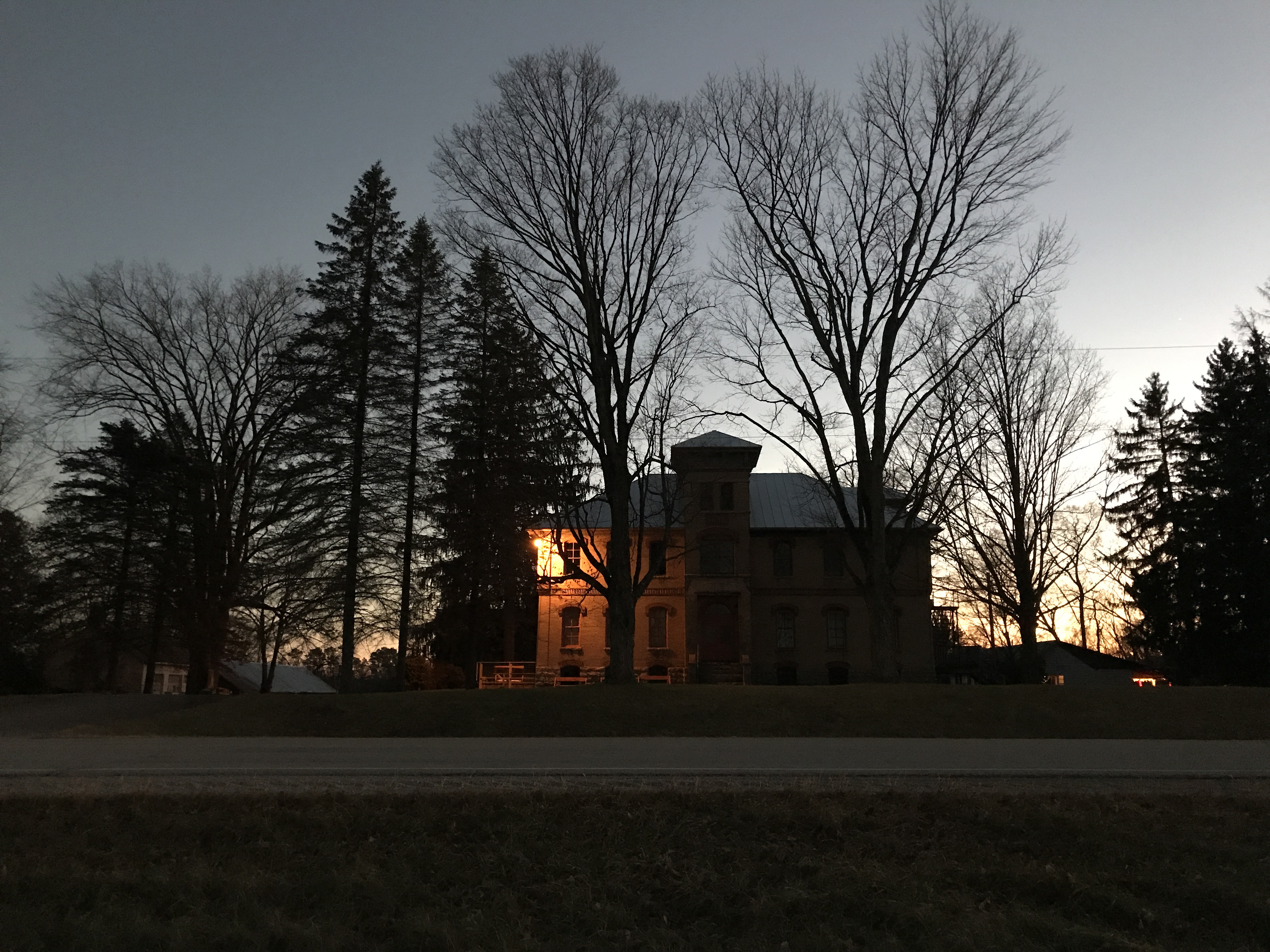
The Poor Farm is a not-for-profit art experiment and residency founded in 2008 at the former Waupaca County Poor Farm (built in 1876) in Little Wolf, Wisconsin. The Poor Farm (EST 2008) and The Suburban (EST 1999), http://thesuburban.org/ supports artists and their ideas.
I couldn’t make it to the Poor Farm
A poem written by Linda Nochlin for art historian Moira Roth's Festschrift and exhibition at The Poor Farm (July, 2010)
I couldn’t make it to the Poor Farm
But It I know what it’s like,
I’ve seen it in my dreams, always on a hill
A lawn of weeds in front, a few bent figures
Scattered here and there, postures unforgiving,
Anonymous staffage.
I know what it is like from reading
About the dispossessed in England, the misérables in France,
The Depression in the U.S. of A. I know what it’s like from
Jacob Riis’s clever photos
That dull the glance, reveal the glare
Of poor folk’s pots, the
Messiness of their bedding, I know
from Daumier, Courbet and the London Illustrated News.
I know what the Poor Farm is like and what it’s not
It’s not nice.
Starting in England in 1834 or thereabouts, with the new
Poor Laws and “scientific” social planning,
They—those in the know, with the power, with the reasons—purposely
Made the Poor Houses as off-putting as possible
So the conniving poor wouldn’t choose to go
Unless absolutely desperate, out of work; the old, the children, those
With nothing to eat and nowhere to go: they made it to the Poor House.
If you were decrepit, had no work, no family and couldn’t afford
The price of a loaf or even a slice of bread, you went.
The Poor Farm was cold;
The Poor Farm was mean;
The Poor Farm licked your old bones clean.
And you worked, you bent, you stitched, you dug, relentlessly
Pleasure? Leisure? Respect?
Not for a moment.
The idea was to make it so bad that you’d rather
Lie on the pavement and hold out a cup, but you weren’t allowed
Because you would then be a Public Nuisance, a shame to the
Good name
Of the Community.
So you went off to the Poor Farm, the last resort, too sick, too sore,
Too tired, to poor for anything, anywhere else
But the Poor Farm on the Hill.
What a spirit of generosity; what a sense of charity what public spirit!
Those Poor Farm taxes made every fat farmer, every portly banker,
Every solid, tax-paying citizen into a complacent donor, though over my dead body
Said some.
But when all was said and all was done,
Some old woman, some old man
Couldn’t fall back on anything; to tell the truth,
Nothing was left, so down
Into the pit of dispossession, wretchedly clinging to
Some last shred of self-respect, some fading memory of self
Crept the derelict into not-quite-prison
The derision of their betters ringing in their ears
(Though they were mostly deaf, poor dears,
And couldn’t hear so it’s just a figure of speech.
Nevertheless, they felt it.)
I never made it to the Poor Farm on the hill—
But I might still.
Count no man happy til the day he dies, said
The Greek writer.
Maybe it’s better to die than to go to the Poor Farm,
But still it’s probably better to be alive, to be kept alive
If not to thrive.
What is it all about, this way of treating poor folks?
It’s about Capitalism, about Free Enterprise, about old
Malthus with his logical lies.
Too many people, not enough stuff?
Prune them down, make life tough
For those who can’t produce, those surplus beings
Who reduce the chance of plenty for the rest of us.
Its law—capitalism’s—ruled the world and rules it now.
Keep working til you drop: work, work and never stop,
And if you stop you’re doomed, even if you’re laid off.
Work even if you’re old and sick, even if you can’t stand up.
Minimize the rations;
Keep the hovel cold;
Clothe their bones in rags,
Drape them in contempt
Nobody’s exempt
from the laws of supply and demand.
Utilitarianism drives the heart of charity
So whip the slackers into shape,
The poor, the old, the helpless are Other, like the blacks,
The dim provincials overseas on obscure continents
Grouped in tin-rooved shacks or ragged tents;
All richly deserve to shiver in the cold.
Yet surely all these terms are shifters: “poor”,” old”
“Other”. Even we could easily be here,
Be knocking at the Poor Farm door.
These are not permanent conditions
Inscribed in DNA at birth, au contraire
They lurk in potens for us all. Any one of
Us could crawl or could have crawled up to
The hateful Poor Farm door.
I never made it to the Poor Farm
But I might. In the middle of the night, in the
Twinkling of an eye lose my money
And my reason and my friends and my position
And my pride, take a ride, slip and slide
Fall
Like them all
Who had nothing left
Who were bereft.
There is no God
There are no angels
Only judges, beasts and strangers
